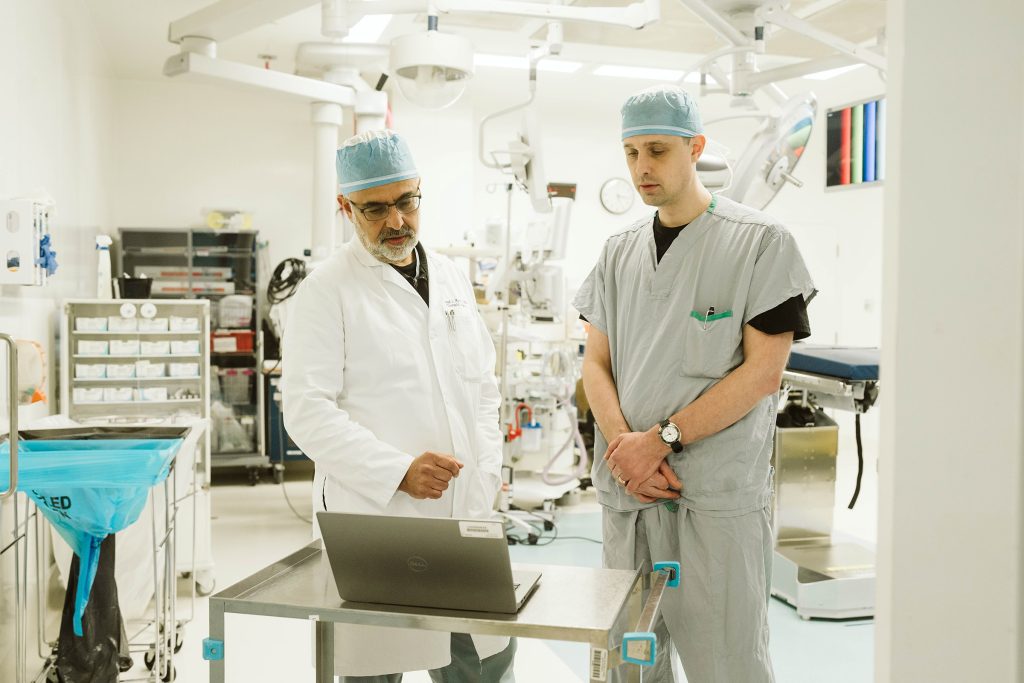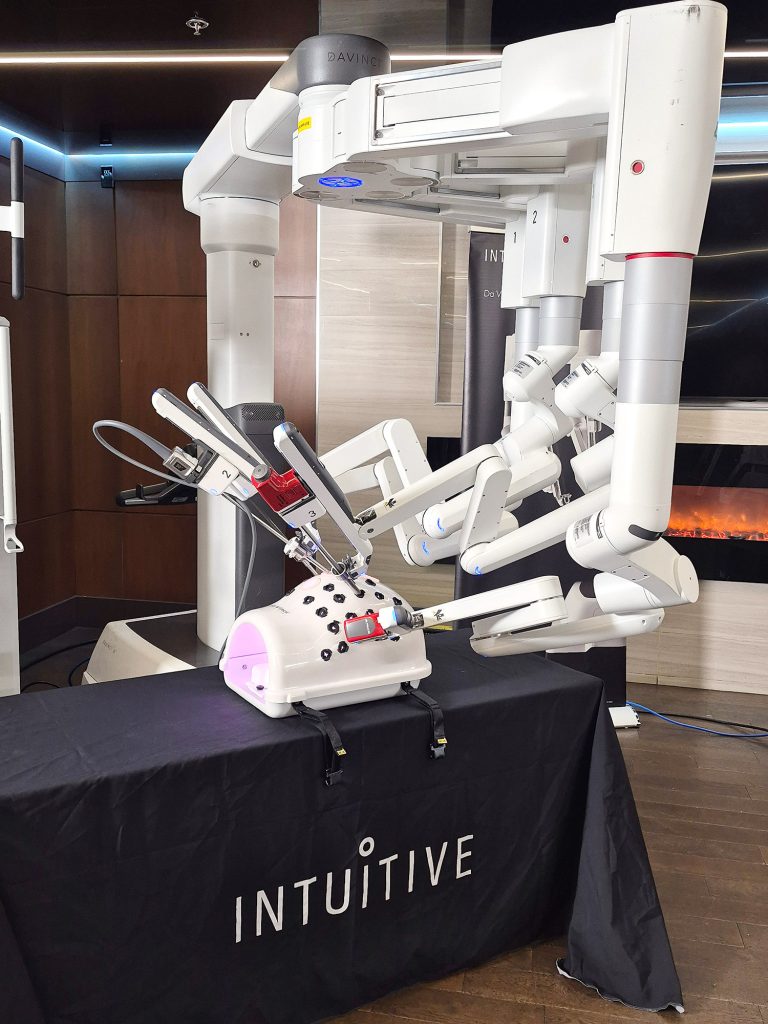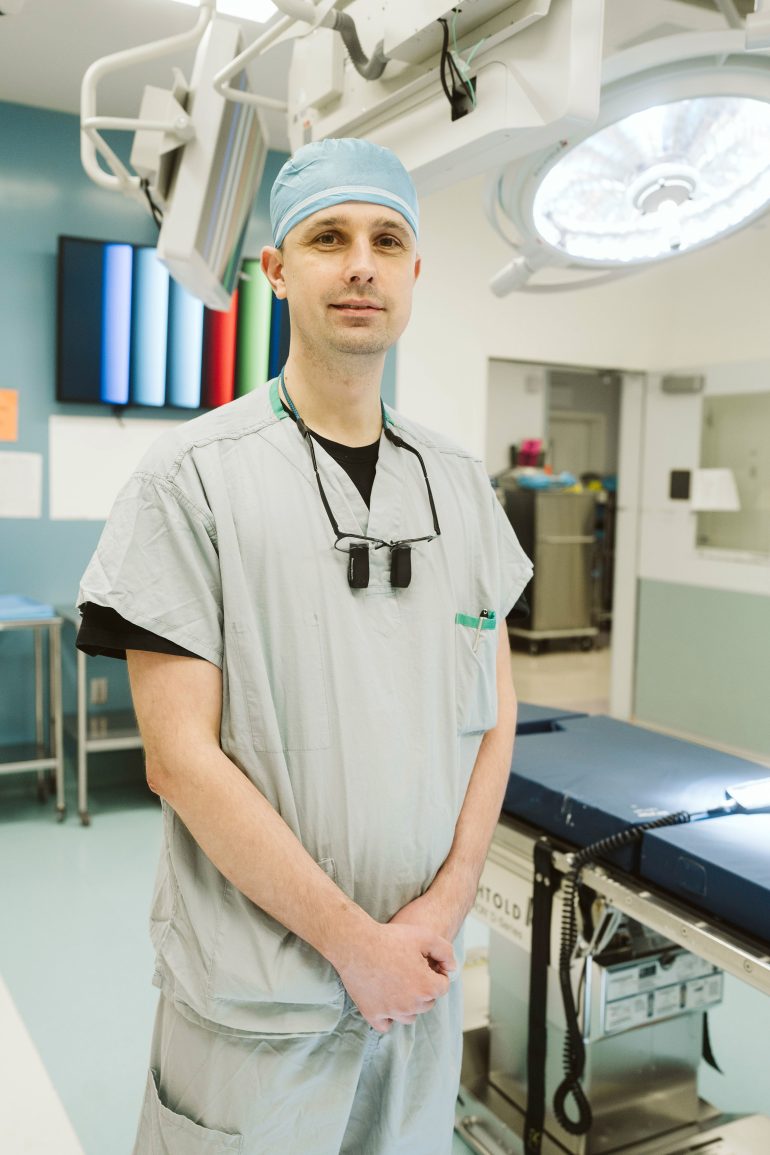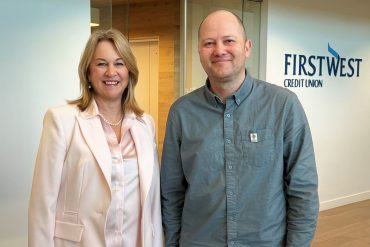British Columbia only has two robotic surgery programs – one at Vancouver General Hospital and one at Royal Jubilee Hospital in Victoria. Still, it is expanding and will soon be coming to Surrey Memorial Hospital.
Dr. Alex Butskiy, a head and neck surgical oncologist and reconstructive surgeon at Surrey Memorial Hospital, will be part of it. He came from Ukraine and underwent undergraduate surgical training at the University of British Columbia, then advanced head and neck cancer surgery training in the USA under a fellowship.
“I was hired in Surrey and Fraser Health, and I’ve been working in Surrey Memorial Hospital now,” Dr. Butskiy says. “This is my fourth year on staff here, and since I came, we’ve been trying, along with my colleagues, to bring the robot-assisted surgical technology to Surrey because Surrey Memorial Hospital, especially our head and neck cancer surgical service, serves the entirety of Fraser Health, which is 1.8 million. So we provide complex head and neck cancer surgeries at Surrey, and this is the only site in the entirety of Fraser Health where we can provide complex head and neck cancer surgery and reconstruction.”

It has been done in Surrey for over a decade, but one of the disadvantages was that surgeons didn’t have access to robot-assisted surgical technology that can enable them to do more precise, minimally invasive surgeries for complex cancers and conditions. The da Vinci Xi robotic surgical system is one of the latest technologies and is instrumental in caring for head and neck cancer patients in modern head and neck surgery.
Now the province, Fraser Health, and the Surrey Hospitals Foundation have partnered to bring the robot to Surrey, and establish a regional robotic surgery program in the South Fraser region, which will significantly impact them and the community they serve.
Surrey Memorial Hospital is the busiest surgical centre in the Fraser Health region where 70 surgeons perform more than 21,000 adult and 1,200 pediatric surgeries each year, across 10 different specialty areas. Its surgical program is already receiving international accolades for excellence in surgical patient outcomes as the only hospital in B.C. to earn top honours in all-risk and high-risk categories from the American College of Surgeons’ National Surgical Quality Improvement Program (NISQIP) Award.
The new regional robotic surgery program at SMH will initially be dedicated to ear, nose, throat (ENT) and thoracic (includes esophagus, lung and stomach) surgical specialties where the need is particularly urgent, however the program will expand to include more specialities in the future.

There are two ways of treating throat cancer: surgery or radiation, and sometimes both.
“We could not offer specific complex surgeries for many of our patients living in Surrey and surrounding communities due to how physically impossible the surgery would be without robot-assisted surgical technology. So those patients would either have radiation treatment, or they would have to travel to Vancouver to get their surgery, or they would have to have a more invasive type of surgery that we can offer at Surrey. But with the new da Vinci Xi robot-assisted surgical technology, our patients in our community will have the option of having minimally invasive surgery right here, close to home.”
By conducting minimally invasive surgery to remove the cancerous cells, many patients can avoid or minimize radiation treatment closer to home.
“The surgery is designed to remove the cancer,” Dr. Butskiy explains. “Once the cancer is removed, we get much more information since the laboratory or pathology physicians analyze them. That analysis determines further treatment for patients. Our hope with robot-assisted surgery is that we can remove cancer and that the patients don’t need any more treatment with radiation or minimize radiation, so that’s what’s very specific to the throat cancer surgery that we do, and that’s going to be the primary use of the robot for head and neck cancer surgeons. Chest surgeons can also use it. In addition to the throat cancer that I described here, we will also use the robot to treat several other benign, non-cancerous, and cancerous conditions with a minimally invasive approach.”
The da Vinci Xi robotic surgery technology allows surgeons to access narrow spaces in the human body. Unlike traditional surgery, where surgeons have to open the jaw to get inside the throat and swing the jaw out for throat cancer surgeries, using the da Vinci Xi, surgeons can conduct minimally invasive surgery, see inside the throat using advanced instrumentation, 3DHD real-time visualization, fluorescence imaging and intuitive motion technologies. The surgeon controls the robotic arms and instruments to perform precision surgeries in a minimally invasive manner rather than opening up the neck.
“It’s almost like remote surgery,” Dr. Butskiy elaborates. “There’s a camera that gives the surgeon a three-dimensional view of the surgical field. He sits at this console, looks inside the body using the 3DHD goggles, can see the surgical field, and operates the surgical arms.”
The robot-assisted surgery allows minimally invasive access inside the body using tiny keyhole cuts, thus reducing trauma and post-operative infections for patients, helps them recover quicker, experience less pain, and reduce the length of their hospital stay so they can return to their daily lives sooner.
“Recovery is sped up,” Dr. Butskiy further explains. “The patient stays in the hospital for fewer days, has fewer complications, and recovers faster. Minimally invasive, so patients recover faster, about two to five days for standard operation for throat cancer, and some variability.”
The Surrey Hospitals Foundation is raising about $5.5 million for the robot and has so far, raised $1.53-million towards this cause recently at their 8th annual Celebration of Care Gala.
“We are scheduled to launch the robot in winter this year. We have to renovate one of the surgical suites to accommodate the robot, so the latest I’ve heard is this is coming December or February. Having robotic surgery here will allow Surrey Memorial Hospital to participate in the future of surgery rather than constantly trying to catch up. We also often get referrals from Kamloops or Kelowna, where they don’t have head and neck surgeries. Robotics surgery is the way of the future,” Dr. Butskiy concludes.



